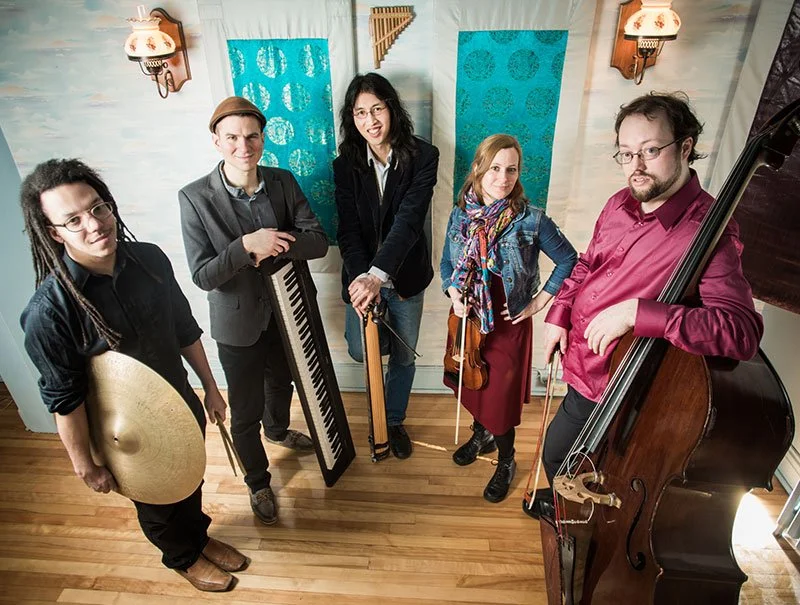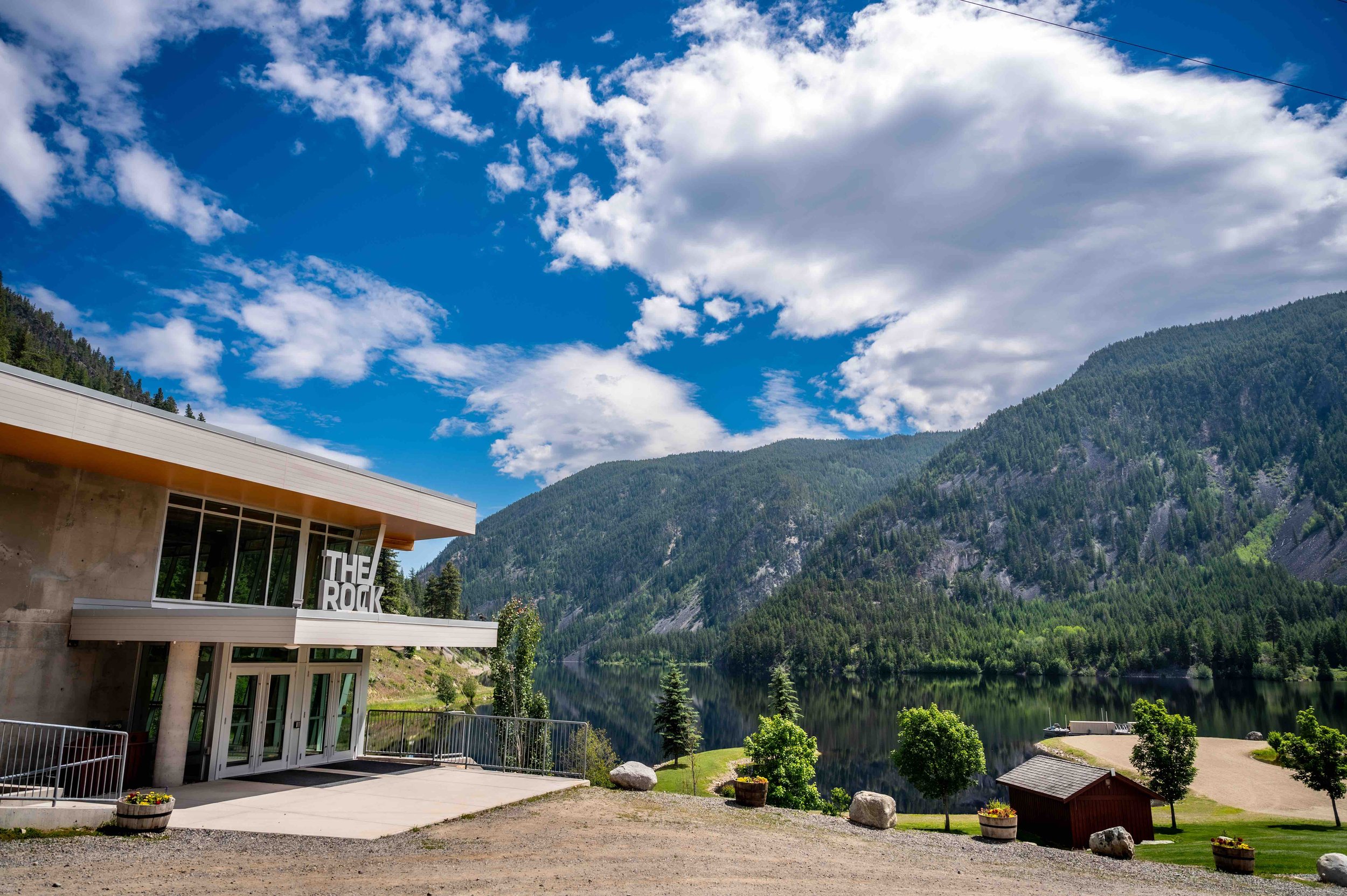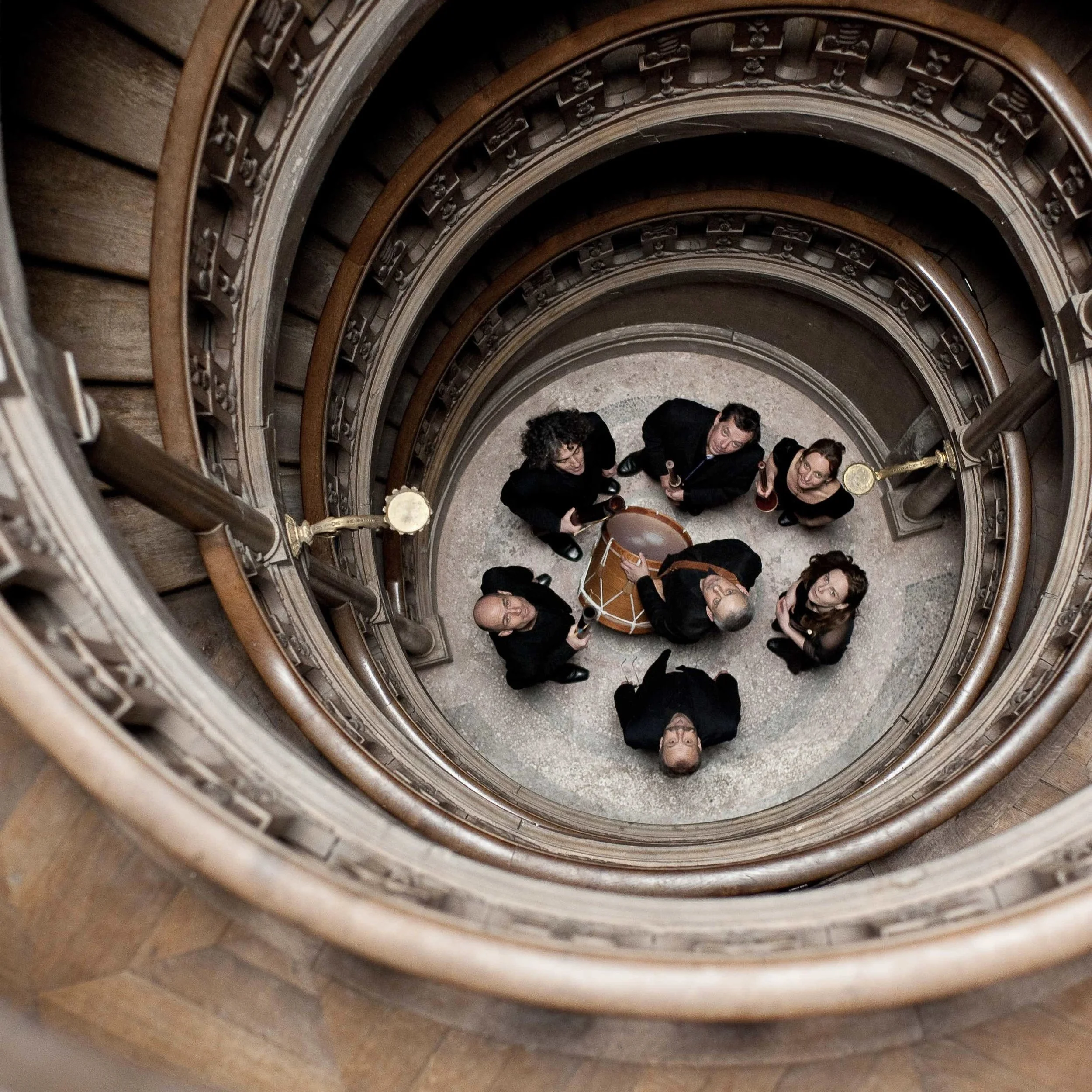For Huu Bac Quintet 's multi-instrumentalist leader, music has always been a refuge
Culture-crossing Huu Bac Quach moves easily between Chinese erhu, South American cane flute, Vietnamese dan bau, and guitar
Huu Bac Quintet leader Huu Bac Quach (centre) draws on jazz and a variety of Asian forms, speaking five different languages.
The Huu Bac Quintet plays at Beaumont Studios on Friday (May 5) and New Westminster’s Anvil Centre on Saturday (May 6)
HUU BAC QUACH did not say this, and neither did Thomas Jefferson, to whom it’s generally attributed. But “I’m a great believer in luck, and I find the harder I work the more I have of it,” is a perfect description of Quach’s methodology, and that’s borne out by the Montreal-based multi-instrumentalist’s whereabouts when we meet for a Zoom chat.
He’s in Mumbai, studying North Indian violin techniques with a South Asian master. Oddly enough, Quach doesn’t play the violin, although he’s an expert performer on the loosely related Chinese erhu, which has half the number of strings and a considerably longer scale length. His plan, he confides, is to adapt Subcontinental violin techniques to the erhu, and then work them into the unclassifiable and deeply personal music that he plays with the Huu Bac Quintet. Even more remarkable is that the erhu is but one of the instruments that Quach tours with; he’s also comfortable performing on the South American cane flute known as the quena, the spookily vocal-sounding Vietnamese one-stringed zither called the dan bau, and the familiar guitar. On top of that, he often composes at the piano, and played saxophone in his high-school band.
How did Quach come to be so accomplished on so many very different instruments? Good luck and hard work, of course—or, as he puts it himself, “good karma and serendipity”.
His musical journey started out with some truly hard times, however, beginning with the fall of Saigon and his Vietnamese-Chinese family’s flight from their home.
“I was part of a wave of refugees called the boat people, at the beginning of the ’80s,” Quach explains. “I’m probably the youngest boat person you could meet, because I was only one year old when I was on that boat. And I grew up in a suburb of Montreal, about an hour from the city, and where that becomes important is that I grew up outside the refuge of the Asian community. Asian culture was not a big thing in the town where I grew up, Valleyfield, as it had only a handful of immigrant families. At home, it was 100 percent Asian, but outside of the house was 100 percent Western. All my friends were Quebecers.”
Wanting to fit in, Quach did what so many other disaffected teenagers have done, before and since: took up the electric guitar. “Music was a refuge,” he says. “And I had a friend who played, so every time I had lunch at my friend’s place we would play a bit of guitar, and I picked it up right away. We formed a band and started doing shows at school, like Metallica, Pantera, Rage Against the Machine.
“I’m still a rocker at heart!” he adds, laughing.
Nonetheless, Quach was accepted into a jazz program at his local Cégep, and got seriously into the music of Jim Hall, Pat Metheny, and other jazz masters. Then he hit a snag—which, in typically serendipitous fashion, turned into a revelation.
“I had some back issues and had to stop playing guitar,” he says. “At the same time, I made my first trip back to Vietnam. I was so depressed that I couldn’t continue to play guitar, but then in Vietnam I saw someone play the dan bau. I always had that sound in my head, because my mom listened to traditional music at home, and when I saw that person play I was mesmerized. So I came back to Montreal and made up my mind that I had to find a teacher.”
As it turned out, the only dan bau teacher in the region happened to be another refugee, Pham Duc Tranh. “I had no idea who he was, but I called him and started lessons—and I learned afterwards that he was one of the top musicians in Vietnam,” Quach says. “Like, you say ‘dan bau’ in Vietnam and three names will come up, and he’s one of them.
“The first summer I started learning this instrument I went to see my teacher play at an Asian-music festival in Montreal, and after him was this erhu player,” he continues. “And the same thing happened: I was completely mesmerized by the playing, and I started taking lessons from her.”
Which, of course, led to Mandarin lessons—Quach speaks five languages fluently—and a scholarship to study in China. Quach brought a guitar and ended up subbing for an Ecuadorean friend, playing Latin music in a Shanghai bar. Connections he made there led to an annual gig in Peru, where he learned the quena, mastered Spanish, and cultivated a passion for Afro-Peruvian music, which blends the syncopated rhythms brought to South America by African slaves with the lilting melodies of the region’s Indigenous cultures.
All of these things combine in the Huu Bac Quintet, which performs at Beaumont Studios on Friday (May 5) and New Westminster’s Anvil Centre on Saturday (May 6). These influences might seem disparate to the point of incompatibility, but Quach has a ready explanation for how he has managed to build his own singular compositional and improvisational voice.
“What allows me to join everything is really my training in jazz,” he says. “That’s already in the DNA of jazz, to bring influences from all over the place. Jazz is so flexible in terms of the rhythms and melodies you can put into it, if you have the knowledge. Basically what I do is I compose in the jazz vocabulary, but in the way I play the melody I try to keep the traditional phrasing or ornamentation that comes with whatever instrument I’m playing.”
That sounds simple enough, but of course it wouldn’t be possible without talent, hard work, and, perhaps most of all, curiosity.
“I don’t want to be pretentious and say that what I’m doing sounds good, but for me it took a lot of time to come to a result that I was happy with,” Quach allows. “Every time I learned an instrument it was never just where to put my fingers and what notes to play. I would visit the country and learn the language; I spent two years of my life in China, and around a year in Peru. You just immerse yourself in the culture: have friends there, know their food, know their history. My point is to make this dialogue of cultures and make something that’s musically homogenous, not just a collage. It’s not like ‘Okay, here’s the South American bit, and now the Vietnamese bit, and now the Chinese bit.’ I want everything to make sense, and once you spend a few years in each tradition you kind of see how they all connect.”














